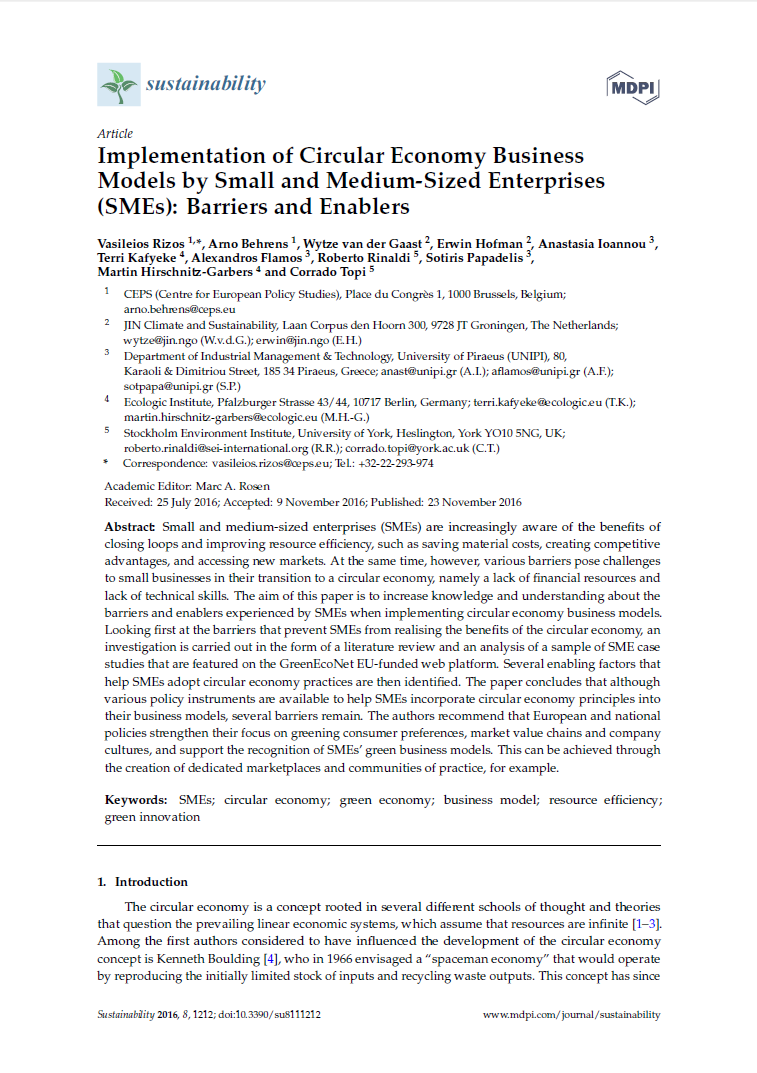
Implementation of Circular Economy Business Models by Small and Medium-Sized Enterprises (SMEs): Barriers and Enablers
- Publication
- Citation
Vasileios Rizos, Arno Behrens, Wytze van der Gaast, Erwin Hofman, Anastasia Ioannou, Terri Kafyeke, Alexandros Flamos, Roberto Rinaldi, Sotiris Papadelis, Martin Hirschnitz-Garbers and Corrado Topi, "Implementation of Circular Economy Business Models by Small and Medium-Sized Enterprises (SMEs): Barriers and Enablers", Sustainability 2016, 8(11), 1212, doi:10.3390/su8111212
Small and medium-sized enterprises (SMEs) are the backbone of the economy and a key player to steer our economy towards a more circular model. However, their small size means that they face unique challenges on the path to closing loops and improving resource efficiency. In an article published in the peer-reviewed journal Sustainability, under lead authorship by Vasileios Rizos from CEPS, Terri Kafyeke, Dr. Martin Hirschnitz-Garbers, and other members of the GreenEcoNet project consortium explore barriers and opportunities faced by SMEs trying to become greener.
For this study, the authors selected 30 case studies from the SMEs featured on the GreenEcoNet online platform. The SMEs were categorized as producers of green solutions, distributors and implementers, and adopters or end-users of green business models. For each selected case study, the team collected information on the barriers and enables experienced by those businesses. Part of the information came from the online profile created by the business, and it was complemented by in-person and telephone interviews. The barriers and enables were then classified in categories to determine how often they occurred in the sample.
The analysis revealed that the lack of a supporting supply and demand network was the most common barrier (experienced by 54% of the sample), followed by lack of capital (50%) and lack of government support (25%). In regard to enablers, the most frequently experienced one was company environmental culture (close to 70%) followed by networking (a third of the sample) and support from the demand network (30%).
The authors of the paper formulated recommendations for policy-makers based on these findings. They mention greening consumer preferences and market value chains as areas to focus on.
Please find the open access article Implementation of Circular Economy Business Models by Small and Medium-Sized Enterprises (SMEs): Barriers and Enablers [pdf, 1.6 MB, English] here.


